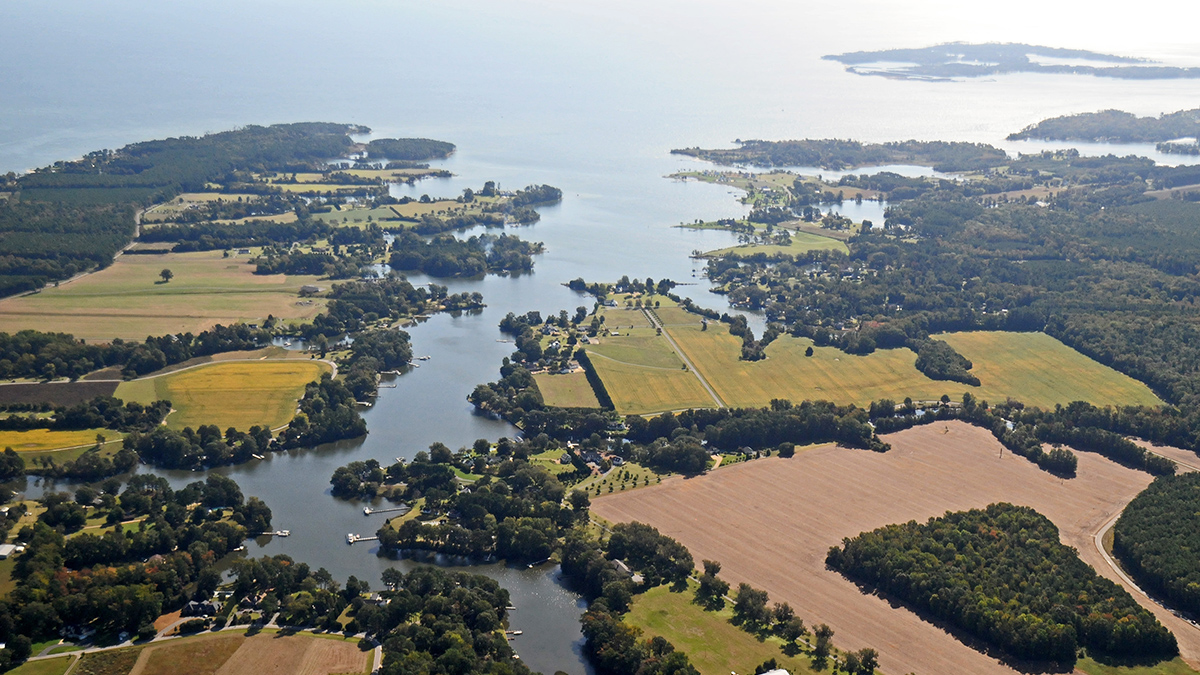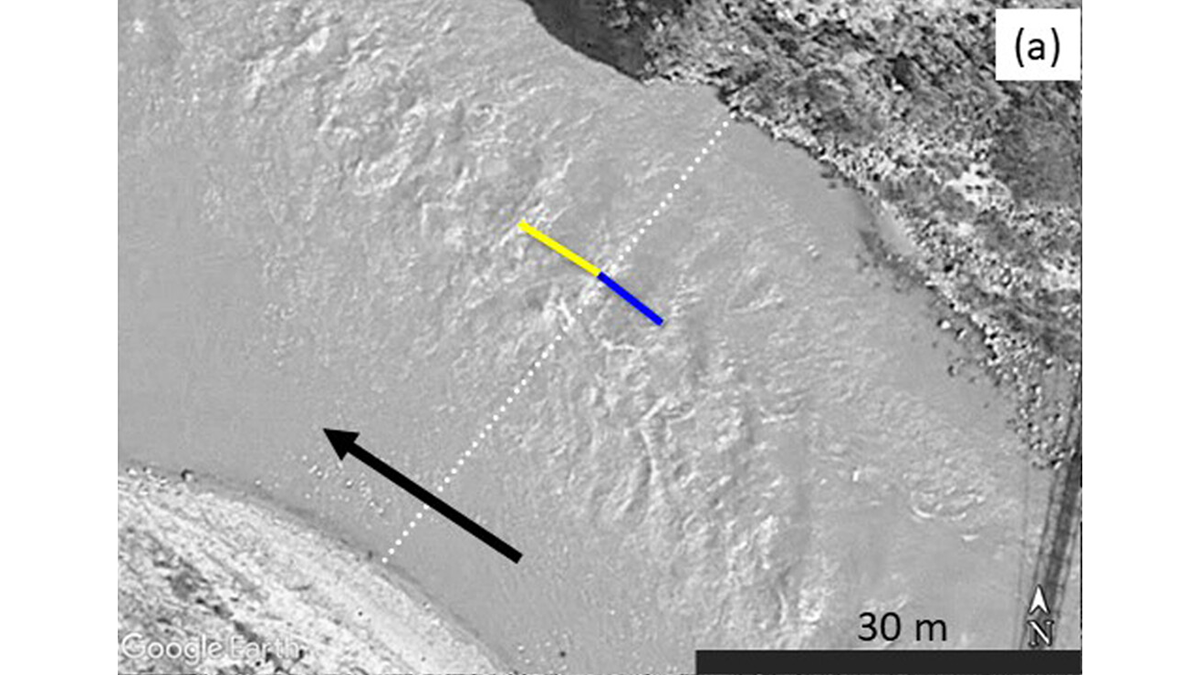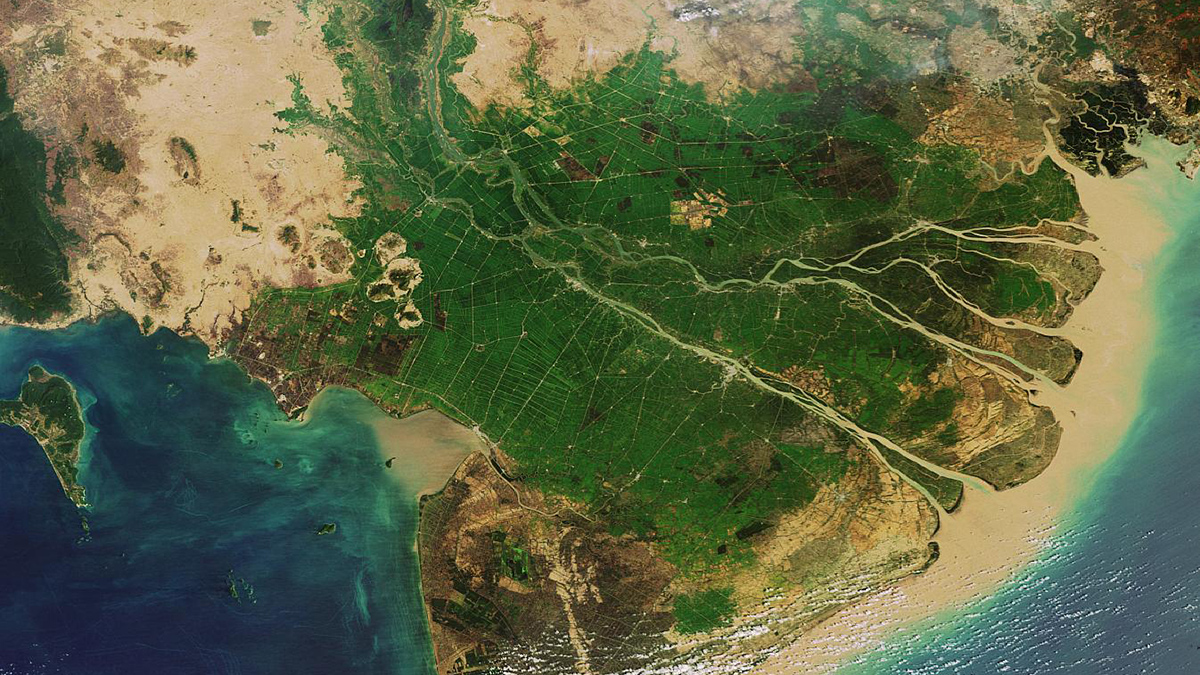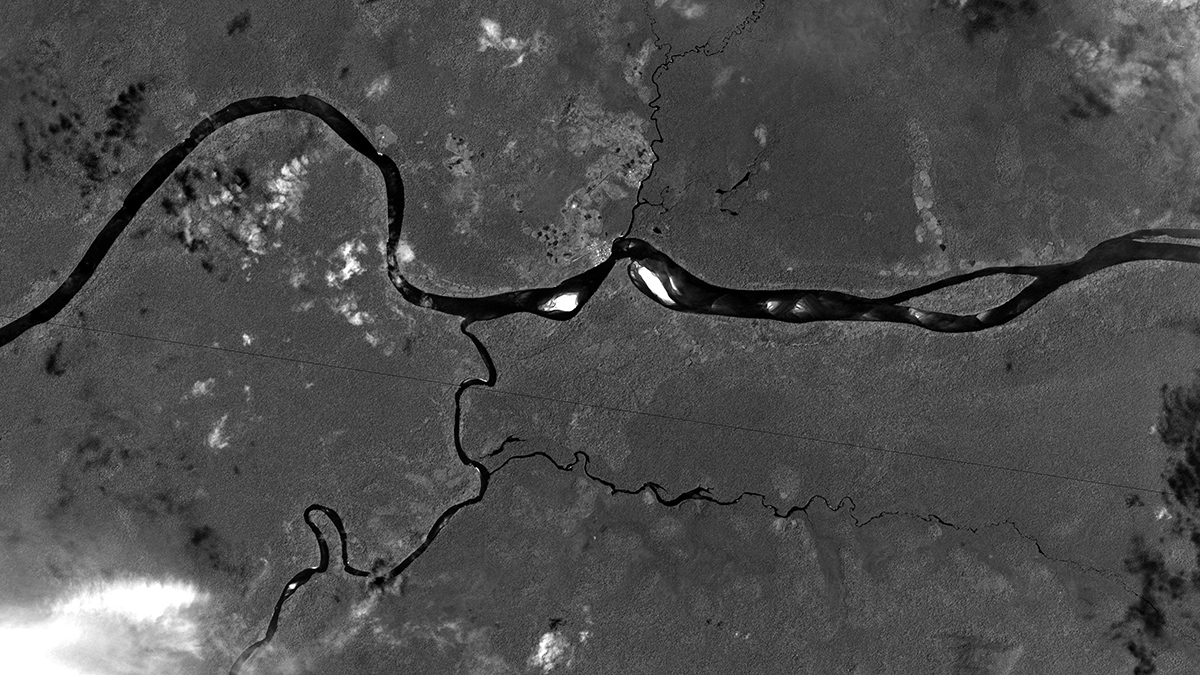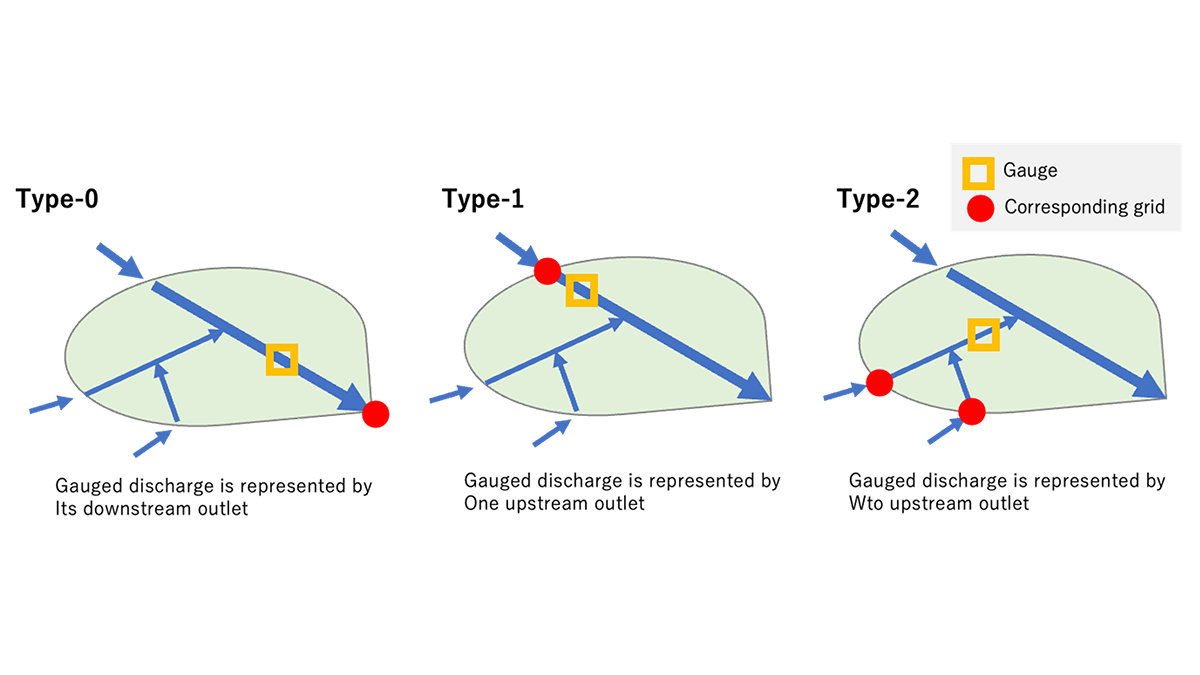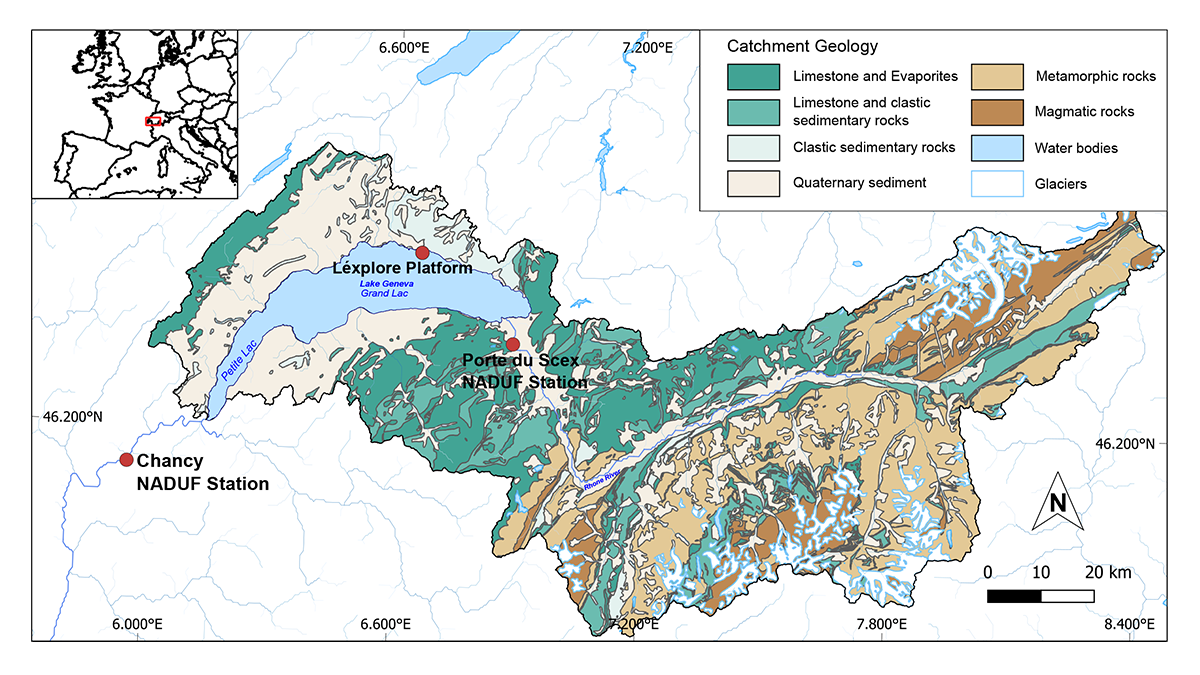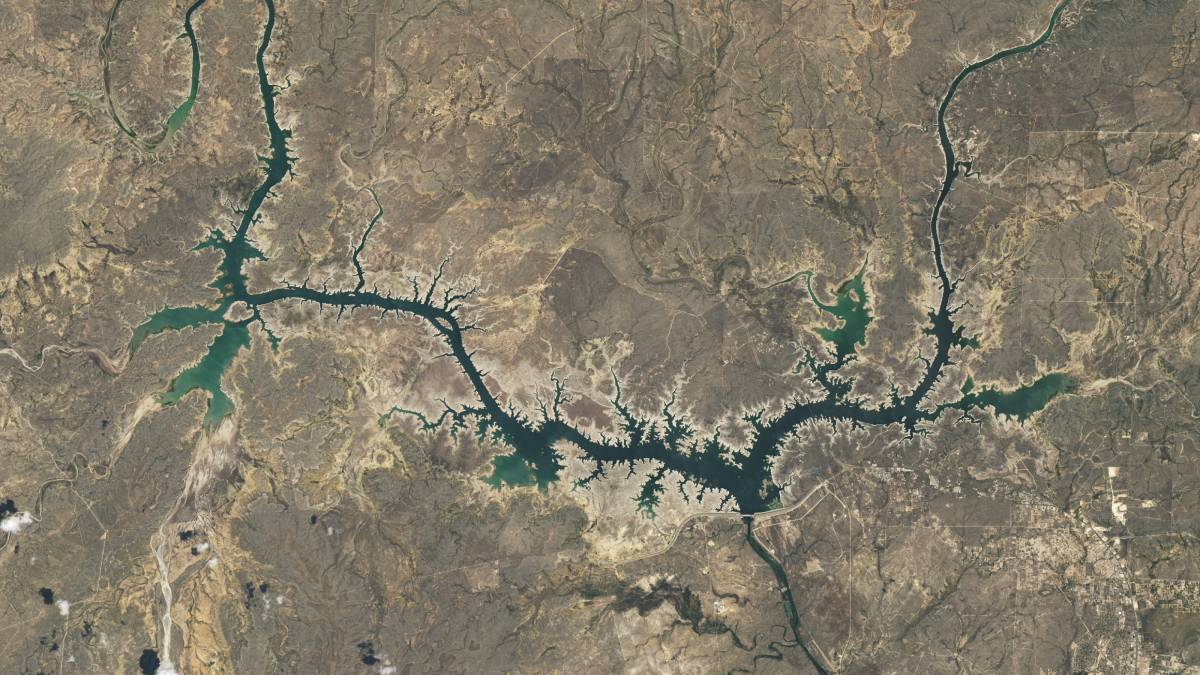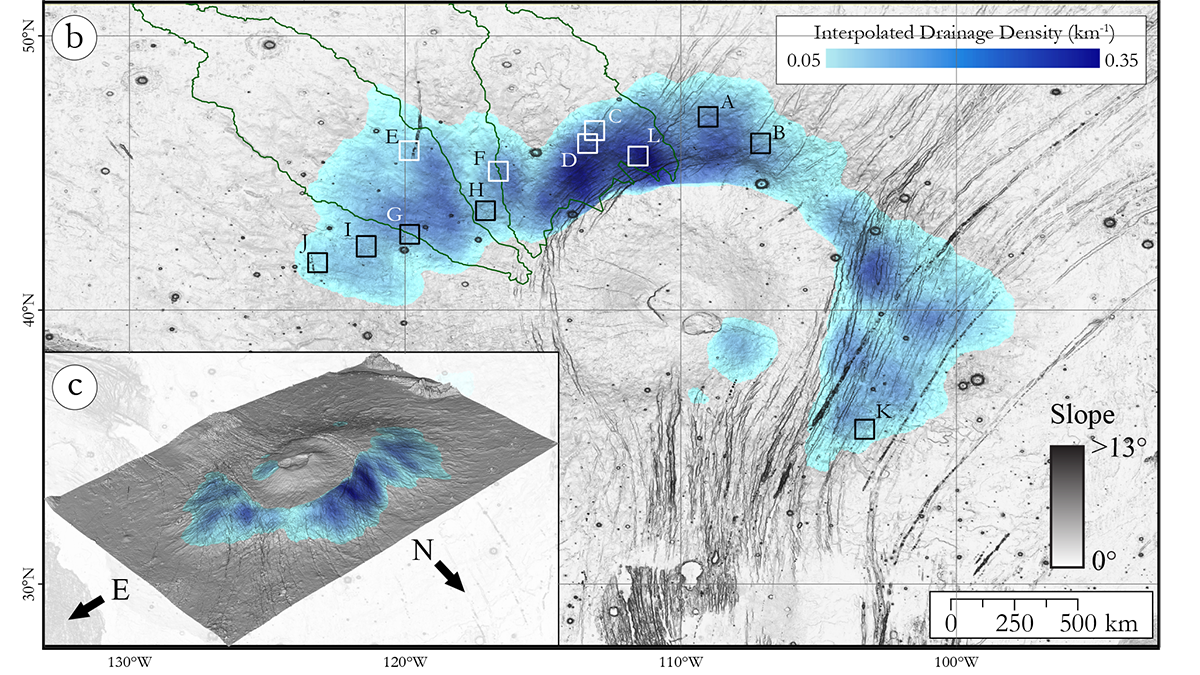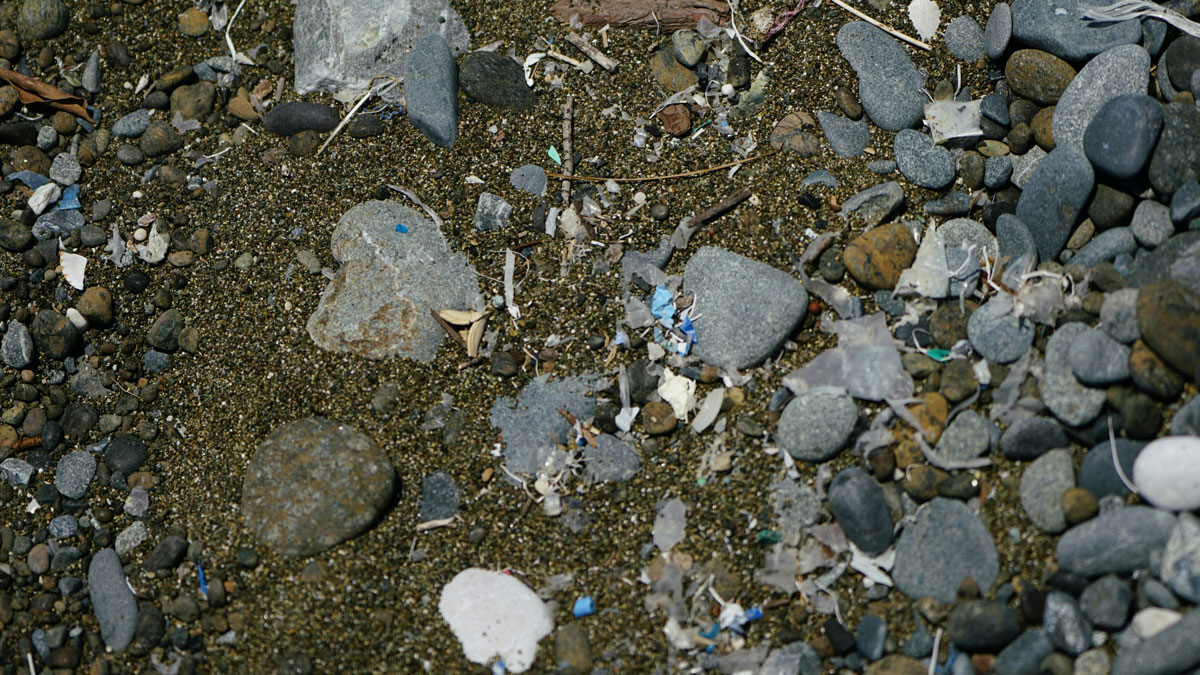La extracción desmedida de aguas subterráneas podría estar obligando a los ríos a infiltrar agua hacia el subsuelo, según muestra un nuevo estudio. Las regiones con actividades de irrigación intensivas son las más expuestas a este riesgo.
rivers
River Alkalinization and Ocean Acidification Face Off in Coastal Waters
Factors ranging from rainfall to nutrient runoff to changing mining and agricultural practices drove decades-long pH trends in the Chesapeake Bay.
Inferring River Discharge from Google Earth Images
Critical flow theory can predict river discharge based on the spacing of standing waves captured by Google Earth images.
New Global River Map Is the First to Include River Bifurcations and Canals
GRIT provides a much more detailed look at how rivers merge and split, which could enhance hydrological modeling, flood forecasting, and water management efforts.
First Benchmarking System of Global Hydrological Models
A benchmarking framework for global hydrological models, essential for Earth System Model evaluations, has finally been proposed.
Organic Radiocarbon Reveals its Inorganic Ancestry in Lake Geneva
Organic and inorganic radiocarbon ages resolve the origin and dynamics of carbon in the largest natural lake of Western Europe.
Mexico Will Give U.S. More Water to Avert More Tariffs
Mexican and U.S. officials announced that Mexico will immediately transfer some of its water reserves to the United States and also allow a larger share of the Rio Grande River to flow into the United States.
Young Rivers on a Martian Volcano Reveal Insights into the Amazonian Climate
A comprehensive inventory of rivers on Alba Mons on Mars reveals a prolonged history of erosion and development into mature drainage networks during the Amazonian, with contributions of rainfall and snow melt.
Avalanches of Microplastics Carry Pollution into the Deep Sea
Scientists observed a once-theorized process ferrying microplastics into the deep ocean.


